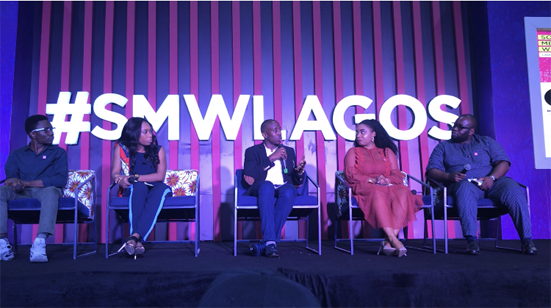
By Prince Osuagwu
One month after, the echoes of Social Media Week Lagos SMWL, is still reverberating. One of the major reasons this social gathering still makes impact long after it held, appears to be the relevance of the sessions and quality of discussions they attract during and after the event. As a platform that specifically champions the course of social media for social good, it may not be surprising that a play-back of some of the sessions, find themselves at the heart of developments in the society, weeks and months after.
For instance, the British Broadcasting Corporations, BBC’s session “the growing audiences in a competitive digital space” appears to have anticipated the tough information management Nigeria and other countries of the world are grappling with now, with the rampaging Coronavirus pandemic gaining tremendous ground across the world.
Although the aim of the session, was more about explaining how BBC has had to change its reach-out methods, with the advent of social media, thereby growing a digital audience, the output was exposing the power of storytelling from a human perspective, which is what the story of coronavirus today, require.
There’s a huge amount of misleading information circulating online about coronavirus from unfounded health tips to speculative, and sometimes, totally false government plans. It just begins with one bad post that went viral.
The panel, made up of five young, smart journalists, Abdulmalik Fahd, Usifo Omozokpea, Janine Anthony, Michael Okeje and Princess Abumere, debated how various styles of reporting news can lead to increased engagement and participation as well as giving every audience, including women and young people a louder voice.
Fahd is of the BBC Pidgin service, Omozokpea is the senior journalist for social media at BBC Pidgin, Anthony is a presenter for BBC TV programme, Sports Africa and leads an all female team in Lagos.
Abumere is the team lead for the digital innovation hub in West Africa, while Okeje is the Growth Editor for West Africa languages.
Social media is generally believed to be the source of fake news, but the BBC session was able to show how effective management can turn otherwise fake news to a relevant piece of information by adding important ingredients left out, apparently, in a hurry to break the news.
READ ALSO: Covid-19: Number of persons quarantined in Imo unknown – Govt, Police
Abumere said: “Fake news is a result of the competition within the news and content creation industry in a bid to deliver fresh perspectives. But in telling a story, there are options. For us in BBC, we do not run to the market with every piece of information we hear. We examine the options and investigate them properly; at the end of the day what matters is not necessarily who broke a story but who got all the sides factually”.
Countering fake news
Beyond these measures, BBC was said to have also moved a step further to cause a global campaign that could lead to a global clampdown on fake news and sources of it, because Abumere declared that: “At the BBC, we recently brought together major global technology and publishing companies including The European Broadcasting Union, Facebook, Google, Microsoft and The Wall Street Journal in a collaboration which will see them work with us on a number of initiatives, including an early warning system to alert each other when we discover disinformation which threatens human life or disrupts democracy during elections; a joint online media education campaign to support and promote media education messages and co-operation on information for voters around elections, so there is a common way to explain how and where to vote.
Media literacy
BBC also said it launched the Beyond Fake News media literacy programme which delivers workshops in markets such as India, Nigeria, Kenya, and Brazil, drawing on the inspiration of its efforts in tackling disinformation in the UK, where digital literacy workshops were also delivered to schools across the country as part of BBC Young Reporter.
The workshops demonstrate to children the importance of being critical of the media and the information they consume on social networks. The workshops are made available, free of charge to teachers and youth leaders across the world through the “Connecting Classrooms” initiative.
Creating new audiences
Meanwhile, social media is not only about fake news. Fahd said: ” Social media has however helped the pidgin service tremendously in creating new audiences, connecting into them and knowing where they are, at all times. It is allowing us to have more meaningful conversation and penetration. The simplicity of social media alligns with that of Pidgin service” he added.
He stated that the opening of BBC pidgin service, is an eye opener to how people can have emotional connection to a radio service when it serves their interest. ” The pidgin service helps us penetrate Africa well, educate the people appropriately. It has also made people accept news the more. Before now, some people regarded news as elitist but with pidgin service, news has become universal and more accepted”
The post Echoes of Social Media Week Lagos: BBC’s recipe for using social media against fake news appeared first on Vanguard News.
https://ift.tt/3dMANnG by Emmanuel Okogba via Vanguard News Albert Einstein Fools of Fortune
Comments
Post a Comment